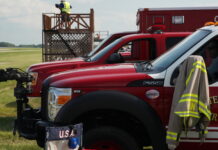As the Cold War was coming to a close at the end of the 1980s and early 1990s, the United States Navy reassessed how it was conducting air operations and decided to institute a new risk management system as a tool in reducing incidents and accidents. At a time when accidents were often seen as a necessary part of intense training, Navy leadership opted to challenge that prevailing sentiment and, instead, foster a new culture in which risk mitigation became a necessary part of the Navy’s decision making process.
This new philosophy was called Operational Risk Management (ORM). Issues like weather, pilot fatigue and maintenance considerations were integrated into the decision making process in a way that they had not been before. Pilots who might have been criticized for opting not to fly a mission in the past were praised for making thoughtful decisions about their own safety. Training missions that might previously have been conducted despite obvious risk were sometimes scrubbed for safety reasons.
The result? A fundamentally different perspective on safety and a dramatic drop in the number of accidents. In the space of just a few years, the Navy went from having as many as six or seven accidents during a six-month cruise to having none or just one or two. Those improvements were driven by a true culture change in which risk identification and risk mitigation were seen as essential parts of day-to-day air operations. This change did not come easily, but the results could literally be measured in lives saved.
As the North American air show community moves into the heart of the 2012 air show season, ICAS encourages all of our members to consider this: if the combat pilots and support personnel of the U.S. Navy can integrate risk identification and mitigation tools into flight operations as they conduct combat operations, doesn’t it make sense for individual air show professionals to integrate some of the same tools into their own flight operations?








